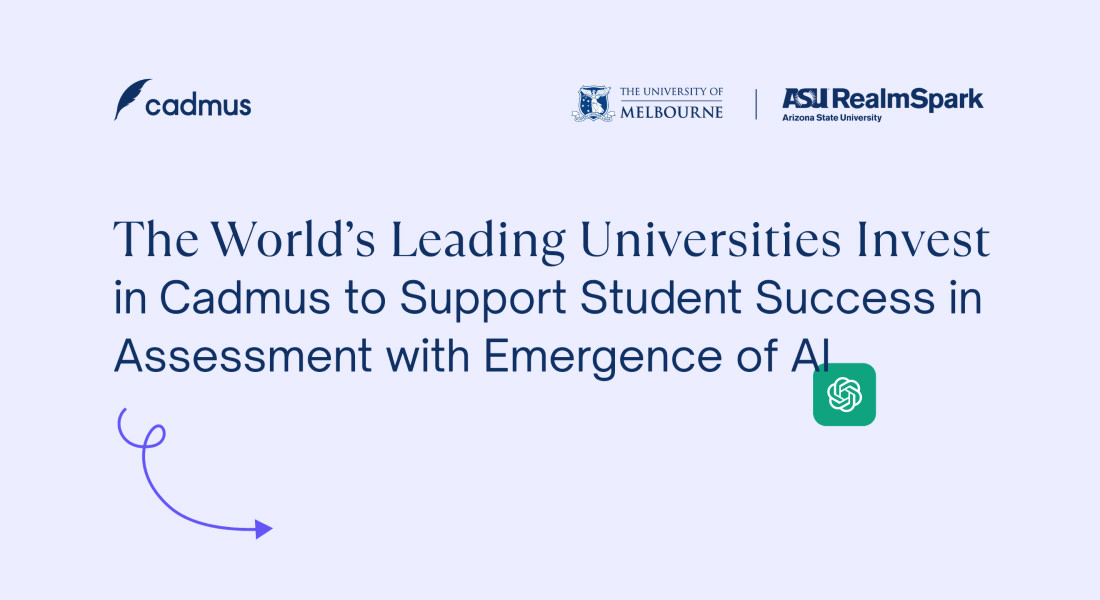Academic Skills with International Students

It's no secret that our universities and classrooms are becoming increasingly culturally diverse. As the number of international student enrolments increases across institutions, so to do the challenges of teaching diverse cohorts. The transition to university can be difficult for all students. However, with the added challenge of studying in what can sometimes be a student's second or third language; university can quickly become a stressful and isolating experience. While the university experience is multifaceted, calling for a range of support systems to be put in place, as teachers, we have the opportunity to support students in the classroom — especially through assessment.
Academic and communication skills are critical for success at university and beyond, with research showing that international students develop these skills best when integrated with disciplinary learning and teaching. As teachers, we're often intuitively aware of student learning needs.
Yet when English hasn't been the primary language of instruction for students, we often assume that students have a better grasp of academic skills than they do.
Equally, students may believe they understand specific academic skills but can struggle to apply them in context. Even as we talk about 'international students', within that grouping, there exists a variety of skills and abilities. Regardless of skill level, there are a few techniques we can use to ease students into completing written assessments.
Explain expectations, then explain them again
A key area of misunderstanding for many students is the importance of academic integrity. When students have little experience with referencing and citation practices, they can find themselves in trouble unintentionally. It's important to explain what academic integrity means at university, and in the context of your assessments. Instead of providing students with information on what they shouldn't be doing, we can shift the focus to teaching them how to develop core academic skills, like synthesising ideas and paraphrasing. By encouraging students to see referencing as a part of the process of developing their work — not just an afterthought — we can improve their learning and quality of work. Providing students with a process to follow while researching, including things like writing down the references they use as they take notes, can help them stay on top of academic integrity from the beginning.
With language barriers, sometimes simply explaining concepts isn't enough. Explain skills to students again, this time with examples. Have your students seen what proper referencing looks like? Have they had the opportunity to practice it before being assessed? Ask students to read a text in preparation for a tutorial, and then task them with producing a correctly cited summary of the work in class. If you use Turnitin as a plagiarism checker, you can also use this opportunity in class to introduce students to the tool in an educative manner.
Did you know Cadmus integrates directly with Turnitin? Students can write, submit and get Turnitin similarity reports all in the one environment.
Students also need to understand the specific expectations of their assessment task. By explaining how the task is being assessed and the value placed on each area (ideally with the use of a rubric), students can feel more confident attempting an assignment. For international students, it's particularly important to indicate how their English language will be assessed.
Start by making skills the focus
Many students can be hesitant to ask for help or feedback, so using small tasks to assess students early in a unit is a great way to identify if students need extra guidance. Again, using a mixture of oral and written feedback can appeal to the various levels of English language within a class. As students gain a better understanding of these core academic skills, they can build towards completing major assessments successfully. Similarly, you can provide students with extra resources on the specific skills needed for an assessment task. Your university's academic skills department is often a great place to begin, with many even providing in-class support for language and academic skills.
Alternatively, with a tool like Cadmus, students get academic skills resources built right into the environment where they complete their assessment. With contextual support as they need it, students can understand and apply skills directly while writing their assignment. Students are free to review resources in their own time, at their own pace, without the often intimidating challenge of speaking up and asking for help.
The best thing about adapting your teaching practices to support international students is that your whole cohort benefits. The extra practice for students familiar with referencing and academic writing will only further refine their skills. With the knowledge and skill-base to approach assessment tasks with confidence, it's not just international students, but your entire cohort, that can be set up for success.
We've only scratched the surface here — Teaching International Students from Melbourne CSHE is a great resource to refer to for more ideas.

Keep learning…
The latest in teaching and learning. Delivered to your inbox.



